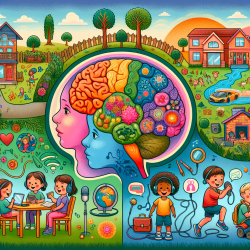Understanding the Impact of Dialect on Reading Skills
In the diverse linguistic landscape of the United States, dialects play a crucial role in shaping the educational experiences of students. A recent study titled Impact of dialect use on a basic component of learning to read explores how dialect differences, particularly the use of African American English (AAE), affect early reading development. As practitioners in the field of education, understanding these impacts can significantly enhance our approach to teaching and supporting students.
Decoding the Complexity of Dialects
The research highlights that many African American children speak AAE, a dialect that differs from the Mainstream American English (MAE) used in schools. This difference can complicate the task of learning to decode words, a fundamental skill in reading acquisition. Decoding involves translating written words into their spoken equivalents, a process that can be hindered by dialectal variations in pronunciation.
Key Findings from the Study
The study found that children who are familiar with AAE may face additional challenges in learning to read due to the differences in pronunciation between AAE and MAE. This is particularly evident in words that have different pronunciations in the two dialects, known as "contrastive words." The presence of these words increases the complexity of the reading task, as students must learn to navigate between the two pronunciations.
Practical Implications for Educators
For educators and therapists, these findings underscore the importance of being aware of dialect differences and their impact on reading development. Here are some strategies to consider:
- Dialect Awareness: Incorporate dialect awareness into literacy instruction. Understanding the linguistic background of students can help tailor teaching methods to better support their learning needs.
- Contextual Learning: Use contextual cues to help students distinguish between dialects. This can aid in reducing confusion and improving reading fluency.
- Inclusive Curriculum: Develop a curriculum that respects and includes the linguistic diversity of students. This approach not only supports reading development but also fosters a more inclusive learning environment.
- Further Research: Encourage further research into the effects of dialect on reading and other academic skills. This can lead to more effective teaching strategies and interventions.
Conclusion
The research on dialect use and reading skills provides valuable insights for educators and therapists working with diverse student populations. By understanding and addressing the challenges posed by dialect differences, we can better support students in their reading development and help close the achievement gap.
To read the original research paper, please follow this link: Impact of dialect use on a basic component of learning to read.










